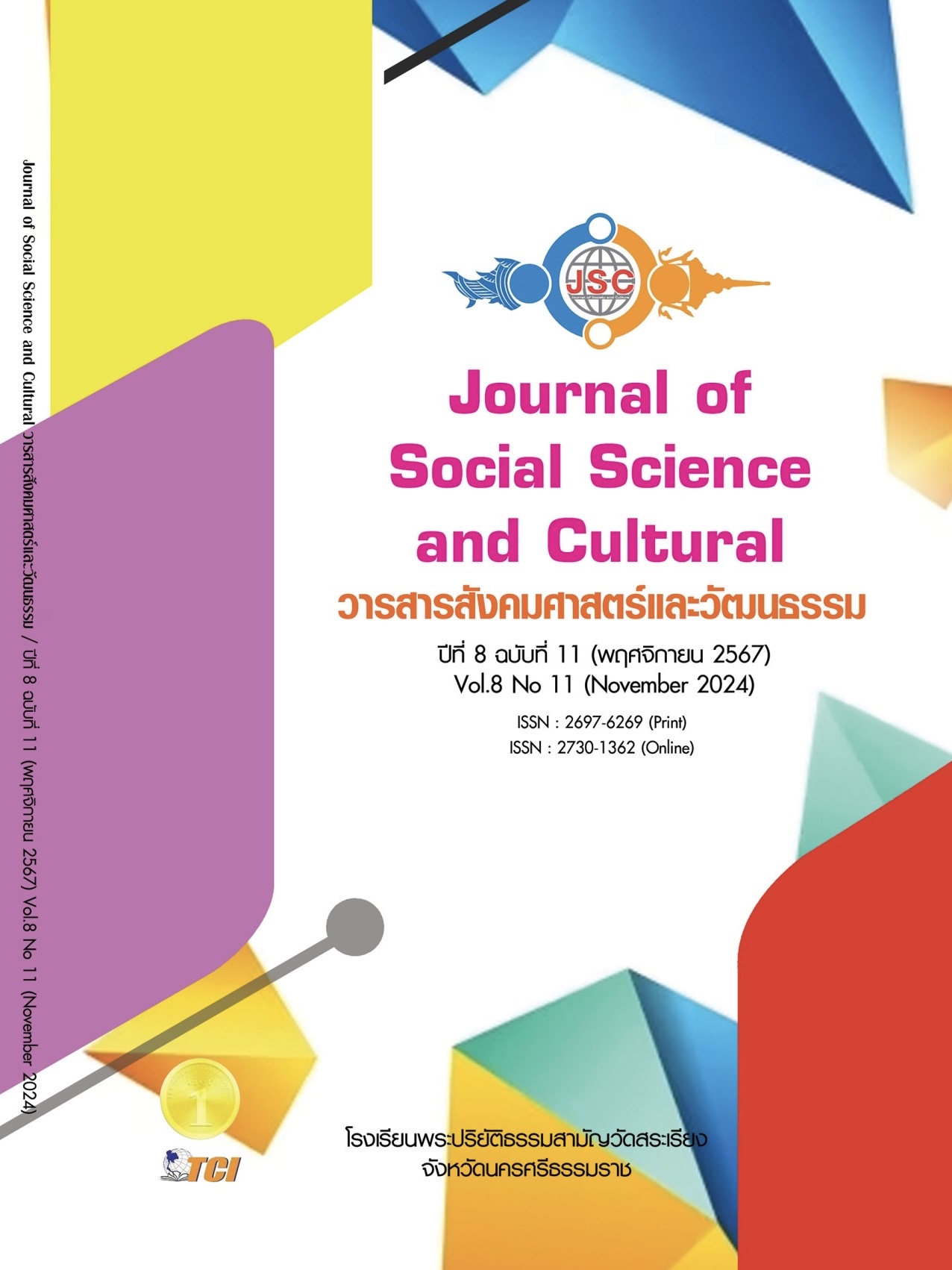POLITICAL CONFLICTS IN THE BUDDHIST SCRIPTURES
Main Article Content
Abstract
The research objectives were to study the political conflicts, analyze the political conflicts and conflict solving in the Buddhist scriptures, and synthesize and integrate the solutions of Thai political and social conflicts, based upon the Buddhist principles. The study was conducted through the qualitative research from the documents and interviews. The key informants were twenty-eight experts; 1) Politics scholars and 2) Buddhism scholars. The research instruments used for data collection from documents and interviews consisted of the structured in-depth interviews. The data were analyzed through the descriptive explanation. The research findings revealed that the political conflicts were originated from the differences of opinions among the rulers, politicians and people, including the absence of social equality, interests, needs, and the differentiation of values. The results of the conflict analysis and the political conflict solution in the Buddhist scriptures disclosed that three Buddhist teachings were Aparihaniya-dhamma, Brahmavihara-dhamma, and Saraniya-dhamma, all of which were targeted to alleviate anger and hatred, to develop human minds and to have them understand each other. The new conflict-resolving way in the Buddhist scriptures was referred to good-will. For example, loving-kindness (Metta in Pali) had people accept and understand each other, compassion (Karuna in Pali) had people understand others’ suffering, attempt to make others free from suffering, and have good relationship with others, and equanimity assisted people to make a fair decision. The synthesis and integration of Buddhism-based political and social conflict solution through the principle of Aparihaniya-dhamma was aimed to response the needs of all sides. The Saraniya-dhamma-based synthesis led to human good relationship, and the Brahmavihara-dhamma-based synthesis to the conflict resolving gave rise to justice and transparency. These three Buddhist principles assisted to accumulate people’s ideas to generate the environment, in which people could sustainably understand, coordinate and justify to resolve the conflicts.
Article Details
References
กุญชรี ค้าขาย. (2550). การบริหารความขัดแย้ง. กรุงเทพมหานคร: มหาวิทยาลัยราชภัฎสวนสุนันทา.
ประสิทธิ์ กุลบุญญา. (2557). ความขัดแย้งและการจัดการความขัดแย้งตามหลักพระพุทธศาสนา. วารสารมนุษยศาสตร์และสังคมศาสตร์, 5(1), 18-40.
พงศ์เพ็ญ ศกุนตาภัย. (2545). หลักรัฐธรรมนูญและสถาบันการเมือง. กรุงเทพมหานคร: สำนักพิมพ์ ประชาชน.
พระครูปริยัติสาทร และคณะ. (2565). แนวคิดเรื่องประชาธิปไตยในพระไตรปิฎก. วารสารมานุษยวิทยาพุทธศาสนา, 7(7), 197-207.
พระเทพเวที (ป.อ.ปยุตฺโต). (2532). พจนานุกรมพุทธศาสตร์ ฉบับประมวลธรรม. กรุงเทพมหานคร: โรงพิมพ์มหาจุฬาลงกรณราชวิทยาลัย.
พระธรรมกิตติเมธี (เกษม สญฺญโต). (2561). พุทธวิธีบริหารความขัดแย้ง. กรุงเทพมหานคร: ธรรมสภา.
พระมหาบุญเลิศ อนฺทปญฺโญ. (2563). แนวคิดรัฐศาสตร์เชิงวัฒนธรรม. นนทบุรี: นิติธรรมการพิมพ์.
พระมหาหรรษา ธมฺมหาโส. (2554). พุทธสันติวิธีการบูรณาการหลักการและเครื่องมือจัดการความขัดแย้ง. กรุงเทพมหานคร: 21 เซ็นจูรี่.
มหาจุฬาลงกรณราชวิทยาลัย. (2539). พระไตรปิฎกภาษาไทยฉบับมหาจุฬาลงกรณราชวิทยาลัย. กรุงเทพมหานคร: โรงพิมพ์มหาจุฬาลงกรณราชวิทยาลัย.
สมิต สัชฌุกร. (2553). เทคนิคการประสานงาน. (พิมพ์ครั้งที่ 2). กรุงเทพมหานคร: วิญญูชน.
สัณฐาน ชยนนท์. (2565). รูปแบบภาวะผู้นำทางการเมืองเชิงพุทธเพื่อแก้ปัญหาความขัดแย้งทางการเมือง. ใน รายงานการวิจัย. มหาวิทยาลัยราชภัฏสวนสุนันทา.
อาภรณ์ ภู่วิทยพันธุ์. (2564). กลยุทธ์ในการพัฒนาทรัพยากรมนุษย์. กรุงเทพมหานคร: เอช อาร์ เซ็นเตอร์.
Bogdan, R. C. & Biklen, S. K. (2003). Qualitative Research of Education: An Introductive to Theories and Methods. (4th ed.). Boston: Allyn and Bacon.
Mcmillan, J. et al. (1997). Research in Education. The United Statesof America: Addison-Wesley Educational Publishers Inc.


